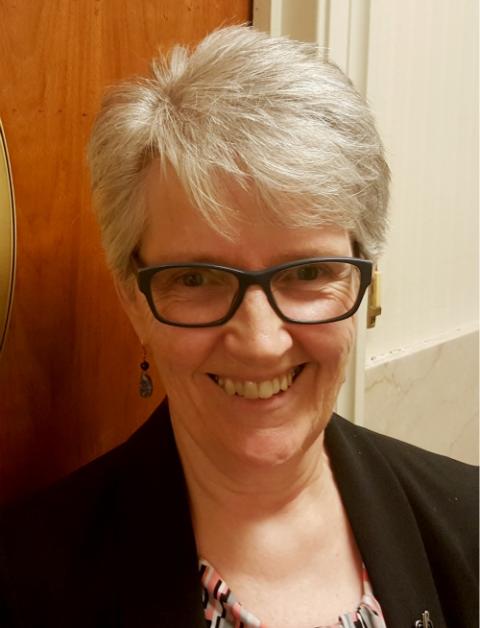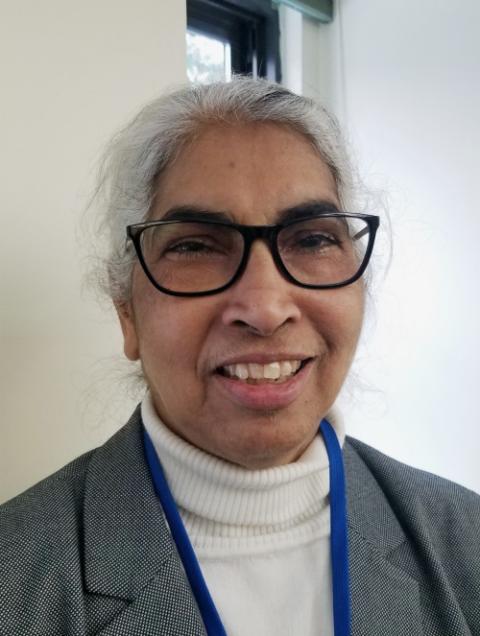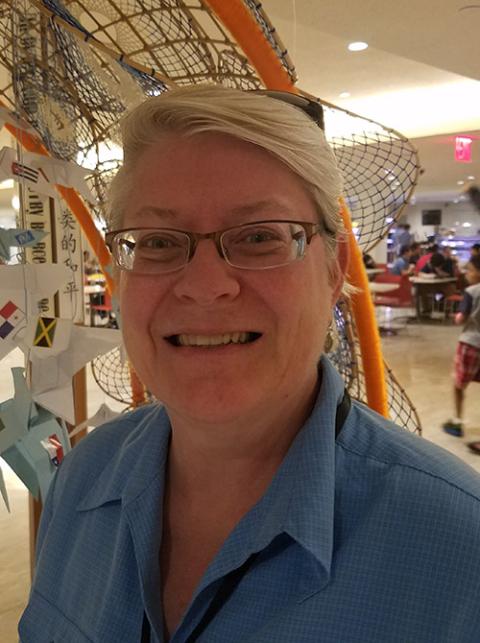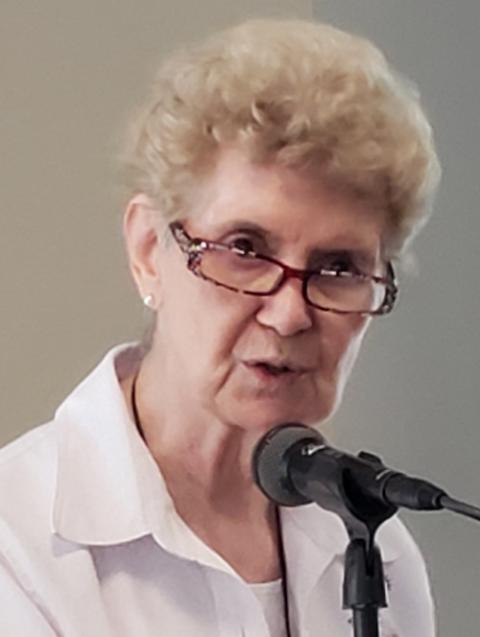Debris is seen through a smashed glass door Jan. 7 at the U.S. Capitol in Washington, D.C., one day after supporters of President Donald Trump stormed Capitol Hill. (CNS/Reuters/Erin Scott)
The Jan. 6 riot at the U.S. Capitol has global implications and mirrors insurrections outside the United States, sisters with international duties and experience told Global Sisters Report.
Their comments came as sister congregations called for prayers, peace and, in some cases, new leadership.

Sr. Winifred Doherty, the U.N. representative of the Congregation of Our Lady of Charity of the Good Shepherd (GSR file photo)
"It was a chilling sight to see," said Irish Sr. Winifred Doherty, who represents the Congregation of Our Lady of Charity of the Good Shepherd at the United Nations in New York City and who worked in Ethiopia from 1991 to 2007.
"I almost have no words," she said. "I never thought I'd see such a thing in the United States."
Sr. Nonie Gutzler, the president of the Maryknoll Sisters, said she and other sisters "were shocked and moved to tears" by the Jan. 6 events. She said a member of her congregation based in Latin America remarked that coups and insurrections are part of the history of that region but that it was startling to see one unfold on the streets of Washington.
Doherty said the events reminded her of her own mission experience in Ethiopia. She recalled street violence, including gunfire, during the 2005 Ethiopian parliamentary elections marked by violence and political repression.
"It was all evoked for me," Doherty said of the U.S. insurrection. "It is chilling to live in a society where there doesn't appear to be law and order."
Supporters of President Donald Trump breach the U.S. Capitol on Jan. 6 in Washington, D.C., during a rally to contest the certification of the 2020 presidential election. (CNS/Reuters/Ahmed Gaber)
She said she had a sense of fear as she returned to her New York residence from her office near the United Nations on the day of the riots at the Capitol.
"We're far from safe from extremist groups," she said, noting the ability of the mob at the Capitol to shut down the work of the U.S. Congress. Perhaps most striking was "the powerlessness of the lawmakers to do anything in that situation."
The United States now lacks "any moral high ground it had always claimed," said Sr. Teresa Kotturan, who represents the Sisters of Charity Federation at the United Nations. She called American aspirations to being "a shining light on the hill [to other countries] a miasma."

Sr. Teresa Kotturan, U.N. representative for the Sisters of Charity Federation (GSR file photo)
But the events also served as a warning of the fragility of democratic institutions everywhere, said Kotturan, who is Indian. She said she is worried about the rise of Hindu nationalism in India that she believes is eroding democratic institutions in that country.
"We can't take the institutions of democracy for granted," no matter if it is in India or the United States, Kotturan said.
"Democracy is not established forever," she told GSR. "We have to work on it and the values of the rule of law. If we don't pay attention, democracy will wash away."
The global trend toward authoritarian leaders diminishes democracy because such leaders "are concerned only about control and power and self-aggrandizement," Kotturan added. But in all places, she said, there is a familiar pattern of "small lies adding up until we're not able to tell the difference."
Advertisement
She said in the United States, segments of Catholic and other Christian communities have supported President Donald Trump because of his opposition to abortion, a view Kotturan and Doherty said has shut aside discussion about a broader pro-life definition that includes attention to health care, education and employment, particularly for women and girls.

Beth Blissman, the U.N. representative for the Loretto Community, in 2017 (GSR file photo)
"The church has failed in the broader education about conscience" in political matters, Doherty said.
Beth Blissman, a lay representative for the Loretto Community at the United Nations, said the attempted insurrection that Trump incited was an example of a lethal combination of "toxic nationalism" and "toxic masculinity" that is particularly harmful at a time of a global pandemic and a global climate crisis.
"We need to think about the global commons," she said.
Blissman, an American, said she hopes — though she is not fully convinced — that the failed insurrection "is the last gasp of old ways of being" in the United States, but "there's a great deal of healing that needs to happen."
Blissman and others said there is an urgent need for embracing the common good, something not lifted up during the Trump years.
Gutzler, also an American, called leadership the heart of the current crisis and said the idea of the common good needs to be affirmed in the coming years.
"A leader needs to bring unity to a country; not false unity, but unity that promotes the common life," she said.
Despite differences of opinion, Trump supporters and critics "want the same thing, including peace for communities and families and a place at the table," she said.

Sr. Nonie Gutzler, president of the Maryknoll Sisters (GSR photo/Chris Herlinger)
At the same time, diversity is becoming the norm everywhere, Gutzler noted.
Taiwan — once governed by one-party rule when Gutzler arrived there for a 25-year ministry in 1978 — now faces some of the same challenges as the United States in trying to make a multicultural society work in a time of economic and social disruption caused by a global capitalist economy.
In Taiwan, that means jobs going to China and families separating for employment reasons, while welcoming new workers from the Philippines and Indonesia.
In the United States, Gutzler said, "it requires asking the question [of] what 'Make America Great Again' means. Does it mean becoming insular, or to acknowledge and to delight in the diversity of different cultures?"
An attendant question is what this all means for the future of democracy in the United States.
"I don't think the idea of democracy will be lost," Doherty said. "But we are at a moment of crisis."







